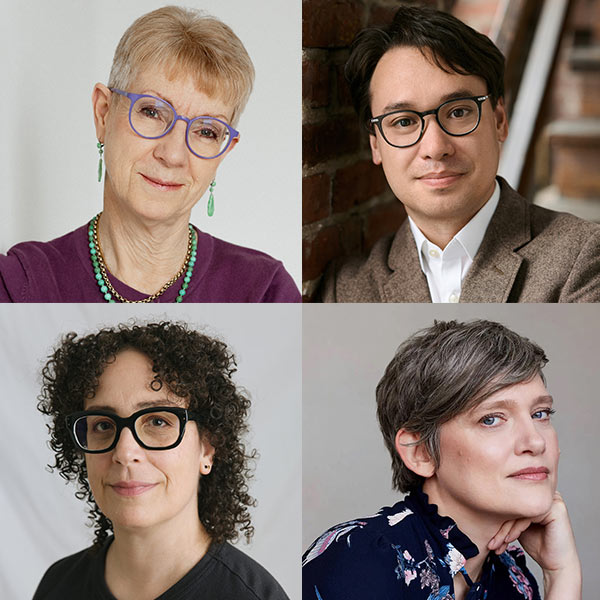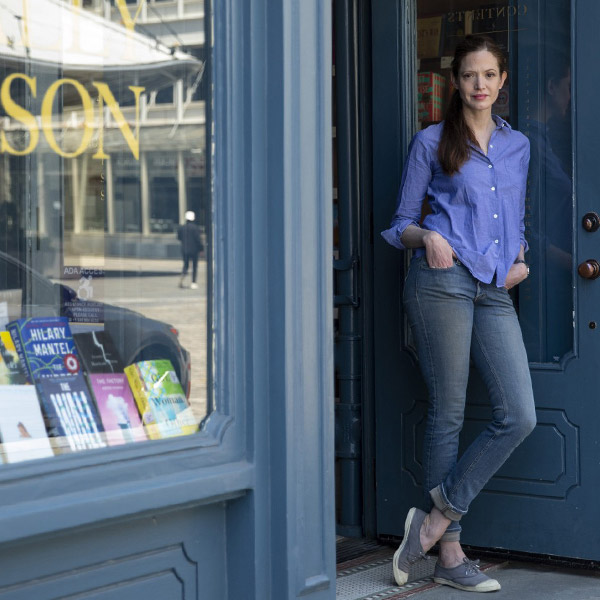I’m not going to sugarcoat it. The next few weeks might be a little challenging.
There are all the work projects that need to meet their end-of-year deadlines. There is the tsunami of holiday shopping. There is the frantic cooking and cleaning (if you’re having people over) or the scrambling about in airports (if you’re the one doing the visiting). There is the occasional awkwardness of family get-togethers (“So, Uncle Benoit and Aunt Cathy are both coming? And it will be the first time they’re in the same room since the divorce?”).
But, once you clear all those hurdles, here’s hoping you can look forward to a day or two on a cozy couch, with a steaming mug of cocoa, a plateful of biscotti, and a good book to dive into.
On that front, we have a few suggestions for you to consider.
Indictment: The Criminal Justice System on Trial (Aevo UTP) by Benjamin Perrin, LLM’07
Police funding, systemic racism, the decriminalization of drugs, the effects of trauma, and the housing crisis: Indictment touches on some of society’s most pressing topics and how they relate to Canada’s criminal justice system.
Author Benjamin Perrin, formerly the lead criminal justice advisor and in-house legal counsel to Prime Minister Stephen Harper, outlines “the pervasive and insidious nature of the problems plaguing the criminal justice system” – a system that disproportionately targets people who experience poverty, have mental health conditions, use substances, and are Indigenous, Black, or people of colour, and then punishes them in a way that all but ensures they end back in custody.
Perrin’s arguments are supported by damning statistics (Canada’s criminal justice expenditures well exceed $25.5 billion per year; a Black person is 370 per cent more likely to be stopped by police than a white person; only six per cent of sexual assaults are reported to the police) but it never becomes a dry academic tome because he centres the voices of those who’ve experienced the system firsthand – people who’ve spent time in custody, the victims of crime, and their loved one.
It’s a challenging read, but the book’s second half offers a vision of what a reimagined approach could look like, such as revitalizing Indigenous legal traditions and adopting successful pilot projects already active in Canada. Putting them into widespread practice requires overcoming multiple obstacles, as a society and as individuals. “We need to approach people with a spirit of humility and compassion, rather than one of pride and condemnation.”
by Stephanie Wereley
Daughter (Doubleday Canada) by Claudia Dey, BA’95
Claudia Dey’s Daughter follows the eponymous Mona, an actress and playwright, as she navigates a deeply toxic web of familial relations.
The daughter of a famous novelist, Mona is close with her father, Paul, but their bond is built on uneasy power dynamics. When Paul informs her of his current affair, Mona becomes his closest confidante, and she likes it. But when he comes clean, Paul casts her as the villain who enabled his dalliance, driving a wedge between Mona, her sisters, and her already difficult stepmother.
Faced with such injustice and ice-cold alienation, Mona must reimagine her role within her family and confront her unhealthy bond to a man who has loomed far too large in her life.
Paul is at once a mythical figure, charismatic and all-consuming, and a small, insignificant man, self-centred and destructive in the pettiest, most human ways. In the line, “To be loved by your father is to be loved by God,” Dey, BA’95, embraces this contradiction, of the mundane and divine attributes of such a parent, and offers us the embodiment of the child who craves validation in Mona.
In her smart, stylish follow-up to 2018’s Heartbreaker, Dey is unsparing in her approach. She describes family dysfunction with a refreshing frankness, mixed with hints of dark comedy.
Within this portrait of conflict is the difficult truth that our lives are made up of a series of performances. We act out our roles, whether within our families, at work, or elsewhere, in the hopes of projecting something truthful through artifice. It’s no coincidence that so many of Dey’s characters are actors and writers, warping reality for their respective audiences. In unpacking that truth in Mona and her family, Dey peels back layers of fiction to reach something real. Something troubling. Something liberating.
by Frederick Blichert
The Class (McClelland & Stewart) by Ken Dryden, LLB’73, LLD’18
Ken Dryden’s latest book revolves around an intriguing premise: Tracking down his former classmates to find out about their lives since they graduated from Etobicoke Collegiate Institute (ECI).
“Almost none of us have lived the lives we imagined. How did we get from there to here?”, Dryden writes near the outset of The Class: A Memoir of a Place, a Time and Us.
In 1960, he and 34 top-performing peers were admitted to the “Selected Class” – or the “Brain Class” as other students called them. Dryden managed to speak with 26 former classmates for the book. “What stunned me was their voices,” Dryden says. “Every person I spoke with was instantly recognizable.” He also talked to family, friends, and colleagues of five of the six who had died.
Dryden paints an evocative picture of suburban Toronto life during a post-war era rife with possibilities, and of their teenage selves at ECI. Much of the book focuses on their lives since. They all went on to university. One of Dryden’s classmates competed in the men’s marathon at the Montreal Olympics. One woman got her PhD at 71. Many became teachers.
For his part, Dryden became a Hall of Fame goaltender, famously juggling his netminding duties for the Montreal Canadiens with his McGill law studies. “Constitutional law and potentially the Bruins were each their own test,” he writes. “The Bruins and constitutional law together, that was an interesting new one.”
Dryden began talking to his former classmates for the book in January 2020 just before the pandemic hit. They’re now in their seventies and each reference to a classmate who has passed on – “she was the fifth of us”, “she was the sixth” – is a poignant reminder of time marching on. You likely don’t know any members of the ‘Brain Class’, but you’ll find yourself curious about how life unfolded for them, partly because of the commonalities we all share – in one way or another – in this thing called life.
by Brenda Branswell
The North Star: Canada and the Civil War Plots Against Lincoln (Knopf Canada) by Julian Sher, BA’75
Decades ago, when he was still a McGill undergraduate, Julian Sher spotted something unusual in Montreal’s downtown Bay department store that so thoroughly mystified him, it stuck with him for years, finally prompting him to do a deep dive into the complex historical currents that made such a thing possible.
What he saw was a plaque honouring Jefferson Davis, the man who had led the fight to protect the rights of slave owners in the U.S. South during the American Civil War.
What the heck was that about? Wasn’t Canada the country that men and women fleeing from slavery in the U.S. tried to escape to?
The result of Sher’s research is The North Star: Canada and the Civil War Plots Against Lincoln, and the book (recently a finalist for the Mavis Gallant Prize for Non-Fiction) examines how Canadians reacted to the war being fought on the other side of the border. Sher’s big revelation is unnerving. There was a surprisingly large number of Canadians in prominent positions – both French and English – who were strongly sympathetic towards the Confederate cause.
Montreal, according to Sher, was “the Casablanca in the American Civil War,” serving as the headquarters of a Confederate secret service involved in numerous plots against the North (most were spectacularly unsuccessful, including one that hoped to infect Northerners with yellow fever). John Wilkes Booth, six months before he murdered U.S. president Abraham Lincoln, enjoyed a friendly reception in Montreal (he was working on a plan to kidnap Lincoln at the time).
Sher’s lively book also introduces us to Canadians who played unique roles in their support of the North, including Emma Edmonds, a New Brunswick woman who successfully disguised herself as a man in order to serve as a Union nurse and messenger, and Anderson Abbott, Canada’s first Black doctor, who joined the Union Army, encountering plenty of racism and receiving a remarkable gift – in recognition of his contributions, Mary Lincoln gave him one of her late husband’s shawls.
The man who led the successful effort to track down her husband’s assassin? Edward P. Doherty, born in Wickham, Quebec. You’ll meet him in The North Star too.
by Daniel McCabe, BA’89
Where the World Was (Goose Lane Editions) by Rosemary Sullivan, BA’68
In her recently published memoir, Rosemary Sullivan, the prize-winning author of 16 books of biography, memoir, poetry, and short fiction, takes readers on a fascinating journey to the far reaches of the globe.
“I have been a traveller all my life. My quest has always been to meet the world, to celebrate its richness, to face its darkness,” she writes in the preface to Where the World Was, a collection of 21 essays that span the past 45 years of her adventure-filled life.
During the global pandemic, looking for a way to escape her imposed imprisonment, Sullivan gathered together some of the travel journeys she has written over the years. There were many to choose from, including trips to England, India, Egypt, Chile, and Holland.
Readers of Sullivan’s earlier works will find themselves in familiar territory: the Moscow of her award-winning biography Stalin’s Daughter, Castro’s Cuba, and wartime France. And those who are new to her writing will be delighted to make the acquaintance of an author filled with an insatiable curiosity and a fearless spirit.
Like a moth drawn to light, Sullivan is instinctively attracted to foreign cultures and places. While I enjoyed her descriptions of the places she visited, I was especially moved by her empathy for the people she encountered. In one piece we meet Stalin’s grandson, Sacha Burdonsky, and the CIA agent who helped his mother Svetlana defect to the U.S. In another we travel to Mexico City to visit the surrealist painter and novelist Leonora Carrington.
In her book’s final essay, written in 2021, Sullivan takes us the Great Bear Rainforest on the coast of British Columbia. Here, as the pandemic begins to ease, Sullivan finds herself standing on the bridge of a ferry. “Looking out over the surrounding sea, buffeted by wind, I could feel it beginning – the elation as one loses oneself in the beauty of it all.”
by Linda Sutherland
Roaming (Drawn & Quarterly) by Mariko Tamaki, BA’98, and Jillian Tamaki
A trip to New York City with friends is a rite of passage for many young adults. In the graphic novel Roaming, Zoe and Dani, longtime friends who are now first-year university students in different cities, reunite in the Big Apple to take in the sights. Fiona, a self-assured and opinionated classmate of Dani’s, tags along. A flirtation between two of the three women quickly develops into something more and the ensuing emotional fallout affects all three.
Roaming marks the third time that cousins Mariko (a writer) and Jillian (an illustrator, but also a co-writer for this project) have worked together, having previously partnered on Skim and This One Summer. All three books have focused on the inner lives of girls and young women with sensitivity and subtlety, dealing with subjects like depression, the changing nature of friendships, and the messiness involved in trying to figure out who you are.
Their collaborations have resulted in awards and critical acclaim – but not everyone is a fan. The protagonists of their works are frequently queer, and the books sometimes touch on sexual subject matter – two factors that have led to the books being banned in libraries in some conservative U.S. states.
Mariko has carved out a unique career for herself in comics, working on thoughtful independent YA projects (often but not always with Jillian) and on mainstream comics for Marvel and DC with big-name characters like Spider-Man and Batman. She is only the second woman to earn the Best Writer prize at the Eisner Awards (the U.S. comic book industry’s version of the Oscars).
New York itself is a character in Roaming – boisterous, intoxicating and overwhelming. Jillian’s art captures iconic landmarks like Central Park, Grand Central Terminal, and the American Museum of Natural History in all their glory. As alluring as New York is, though, Roaming makes the point that sometimes it’s not a bad idea to take a break from sightseeing, stay in your hostel room, and iron things out with someone who matters to you.
by Daniel McCabe, BA’89
The Great Goldbergs (Cormorant Books) by Daniel Goodwin, BA’91
At the heart of Daniel Goodwin’s third novel is an examination of power.
Handsome, charming, widely admired Saul Goldberg wields absolute control over a successful gold mining enterprise, one of the world’s largest, but the power he exerts over his family proves devastating.
We see the Goldbergs through the eyes of Sean McFall, a scholarship student at Lower Canada College, then a private school where the Montreal elite educated their sons. Feeling “poor, small, and nondescript” on his first day at LCC, Sean is taken under the wing of popular student David Goldberg and with that friendship, “the trajectory of my life was…altered.” The younger boy is pulled into the orbit of the Goldbergs, travelling between his “lower-middle-class sea of semi-detached houses” in NDG to the “different world” of upper Westmount and David’s home with its tennis courts and swimming pool.
The boys and Daniel’s two brothers enrol at McGill as Sean felt his “destiny had somehow become tied” to the family. Indeed, Sean begins classes with the promise of a job at Goldberg Limited and after his undergraduate degree, he is encouraged by his future employer to study law.
Sean begins a successful career at the family firm where over time, the charisma of “Mr. Goldberg” as Saul is always known, is revealed as something else. The father kills chances for other careers for two of his sons who don’t want to enter Goldman Limited, yet bars them from positions of trust. The man who once seemed to Sean to “glow” hides secrets that ultimately destroy both the business and the family.
The novel is measured in tone, matching the slow, incremental revelations of deceit, and lending even greater impact to the consequences of Goldberg’s ruthlessness. Daniel Goodwin clearly evokes Shakespeare’s warning to look beneath the surface of all that glitters.
by Diana Grier Ayton


